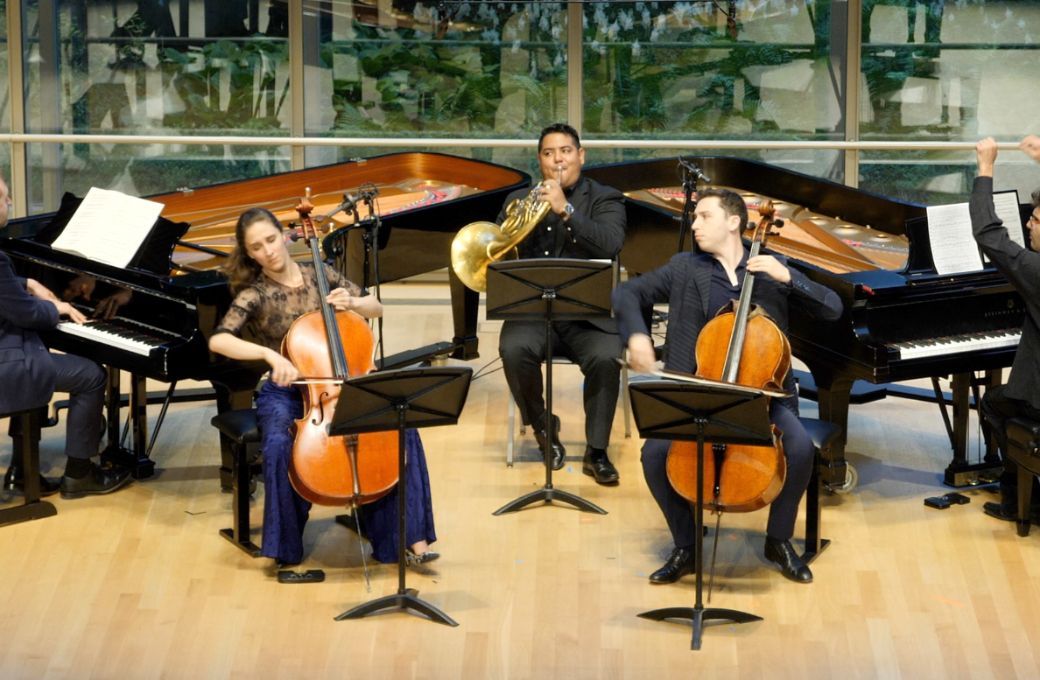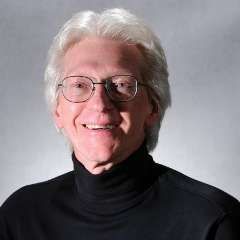Now in its 12th year, Chamberfest Cleveland has become a shining star in the city’s classical music firmament. Bringing together first-rate players for a Marlboro-style fortnight of spirited collaboration, the festival offers creative programming built around an evocative theme. This year’s “Sacred and Profane” motif offers a tasty mix of the familiar (Bach, Dvořák) and the obscure (Gubaidulina, Grainger), along with dashes of pop (Rodgers & Hart, Lennon & McCartney) performed in a variety of resonant venues.

One of the finest is Mixon Hall, a 235-seat wood-and-glass gem at the Cleveland Institute of Music with near-perfect acoustics. It provided a scintillating setting for an evening of “Fantastic Tales” featuring unusual combinations of instruments in works by Schumann, Caplet and Korngold.
Schumann’s Andante and Variations had a French horn at its center, flanked by matching pairs of cello and piano. The pianists trade lines embellished by the other players, and with Adam Golka and Roman Rabinovich at the keyboards, were the dominant voices in a smart, sensitive reading of the piece. Clean, precise playing and tight control of a measured tempo made for a sophisticated yet accessible performance. Overall the sound was a surprisingly good fit, thanks to detailed work by cellists Annie Jacobs-Perkins and Oliver Herbert, and warm, round horn tones from Nelson Ricardo Yovera Perez. Most impressive was the musicians’ ability to maintain five clear, distinctive voices throughout an idiosyncratic piece, no small accomplishment for an ad hoc ensemble.
Harpist Bridget Kibbey provided a lively introduction for André Caplet’s Conte Fantastique, recounting the story that inspired the piece – Edgar Allen Poe’s Masque of the Red Death. Her playing style was no less animated, with exaggerated facial expressions matching her sharp snap of the strings. A string quartet (violinists Diana Cohen and Joseph Lin, violist Milena Pajaro-van de Stadt, cellist Herbert) added swirling motions, dark textures and slashing lines that presage Bernard Hermann’s score for Psycho. A freewheeling spirit in the playing, anchored by Kibbey’s character-driven performance on the harp, made the piece both unsettling and highly entertaining, drawing an enthusiastic response from the audience.
Korngold’s Piano Quintet in E major was less cohesive, mostly due to the complexity of the material and the group’s overbearing approach. The intensity was set in the first movement, with Golka hammering on the keyboard and hard, insistent strings in the quartet augmented by Jacobs-Perkins’s tearful cello. An atonal undertone in the second movement added even more weight that finally let up with a finely detailed finish. The finale opens up into a many-layered chase, packed with quick turns and modern sonorities, that the ensemble (which included Alexi Kenney and Jason Yu on violins, and Paul Neubauer on viola) finally seemed to warm to, lightening up for a high-spirited romp. To be fair, Korngold’s instructions call for an “extremely committed” style of playing, and the virtuoso skills required to perform this piece properly would tax even a long-established chamber group. If this outing didn’t quite hit that level, it was nonetheless an insightful and enthusiastic treatment of a minor masterwork.
And what is a music festival without a few risks? The quality of the players at this one – most hold prestigious positions at orchestras and music schools, or are star soloists – invite bold programming, and Chamberfest Cleveland is happy to explore challenging territory. Sing along to Eleanor Rigby if you like, but for true music aficionados in northeast Ohio, this is the place to be in the summer.


